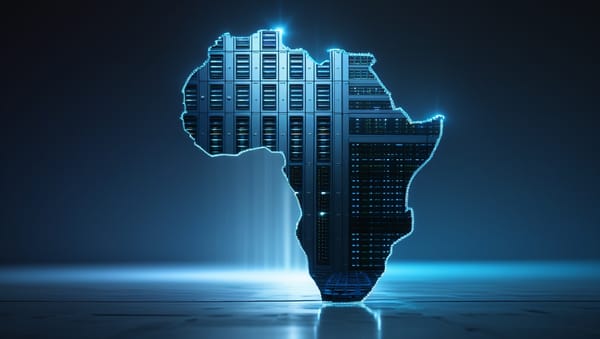Since the coup d'etat of May 24, 2021, Mali has been illustrated by its instability. This takeover of power has the emblem of deteriorated press freedom and a disastrous humanitarian, security and economic situation.
Since the coup d'etat of May 24, 2021, Colonel Assimi Goïta has established himself in power after having reversed President Bah N'Daw and Prime Minister Moctar Ouane. Officially, this putsch was justified by internal tensions caused by a controversial government reshuffle. Unofficially, it is a military coup to maintain control of the country.
A few days later, on May 28, 2021, the Constitutional Court legitimately reversal by designating Goïta President of the Transition. Since then, power has been fully concentrated in the hands of the military, who have had a total influence on the economic and political decisions of the country.
Opponents? Repressed. Journalists? Reduced to silence.
The disturbing decline in press freedom
If Mali has never been a model in terms of press freedom , the situation took a brutal turn after 2021.
In 2020, the country occupied 108ᵉ placed in the World Press Freedom classification established by Reporters Without Borders. After the putsch, it momentarily climbs to 99ᵉ place, before diving year after year: 111ᵉ in 2022, 113ᵉ in 2023, and 114ᵉ in 2024 . A descent into hell that perfectly reflects the atmosphere of fear and censorship that reigns in Bamako.
Journalists are harassed, arrested, sometimes removed without leaving traces. In November 2024, the authorities suspended the broadcast of the Joliba TV television channel after criticism against the Burkinabé government. A decision that is part of a broader information control policy.
On February 5, 2025, a new CAP was crossed. Daouda Magassa, member of the coordination of movements, associations and sympathizers of Imam Mahmoud Dicko (CMAS), is removed in the street in Bamako by men in civilian clothes. He had dared to openly criticize the regime. Since then, no news of him. International calls are multiplying, but the government is silent.
The repression of the press in Mali is part of a context of general degradation of the security situation. In parallel with the growing media censorship, the terrorist threat, reinforced by the Russian mercenaries, continues to intensify, as evidenced by the attack near Gao in February 2025.
The security situation in Mali degrades strongly
Even before the coup, Mali was already a privileged target of terrorist groups. On November 1, 2019, the attack on the Military Camp d'Instimana left 49 people dead among the Malian soldiers, a carnage claimed by the Islamic State.
Since 2021, the situation has only been getting worse. The security forces are reinforced, the Russian Mercenaries of Wagner (now Africa Corps) are called to the rescue ... But the observation is relentless: insecurity is progressing.
On February 7, 2025, a jihadist attack targets a civil convoy escorted by the Malian army and Russian mercenaries was targeted near Gao. The assessment of this attack was 25 dead and 13 injured, according to official figures, but local sources speak of 56 bodies found in the hospital. An umpteenth attack which underlines the failure of the authorities to secure the country, despite an increasingly important military presence. And as often, the Malian army and its Russian allies are not to be outdone in violence. Human Rights Watch documents summary executions, destruction of villages and abuses committed on civilians. The population, taken between two fires, no longer knows who to turn to.
The persistence of terrorist attacks, despite the strengthening of Malian security forces and the support of Russian mercenaries, reveals the inability to effectively secure the country. These violence is accompanied by increasingly criticized economic management, where measures such as new taxes on telephony and illegal mining aggravate the suffering of Malians.
Of the economic Roces at the risk of the lives of the inhabitants
The Malian economy, already suffering, must take new drastic measures. In 2024, the government established taxes on telephony, a decision immediately criticized while the cost of living exploded. Officially, these taxes aim to make up a public debt increasing. Unofficially, they hit an already bloodless population.
But that's not all, the country suffers from recurrent power cuts, which paralyze economic activity and weigh down businesses. In this context, the mining sector - pillar of the Malian economy - is also affected by repeated dramas.
On February 15, 2025, the collapse of an illegal gold mine in Bilaly Koto left 48 dead, mainly women. This site, abandoned by a Chinese company, was operated in precarious conditions by artisanal gold areas. A preventable drama, but far from being an isolated case: the absence of regulations in the mining sector makes each exploitation a deadly trap.
The coup has aggravated the security and humanitarian situation of Mali. From the abuses committed by the Malian armed forces, to the atrocities inflicted on civilians by their new Russian partners, the authorities endanger their population.
Three years after the coup, Mali is more than ever in crisis. Far from having brought back the promised stability, the military regime has plunged the country into security, economic and humanitarian chaos.
The repression of dissident voices, the violence of armed groups and abuses of government forces have transformed daily life into a fight for survival. And faced with a power that closes to all criticism, the future promises to be dark for the Malians.









